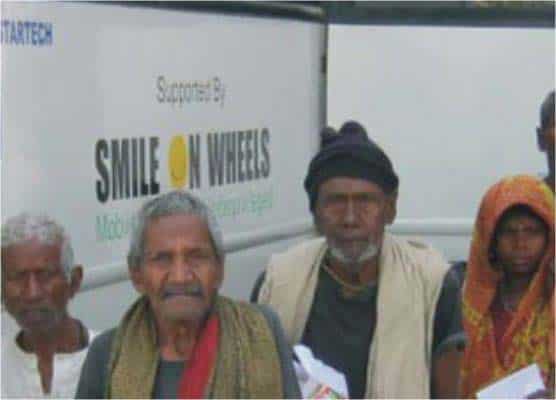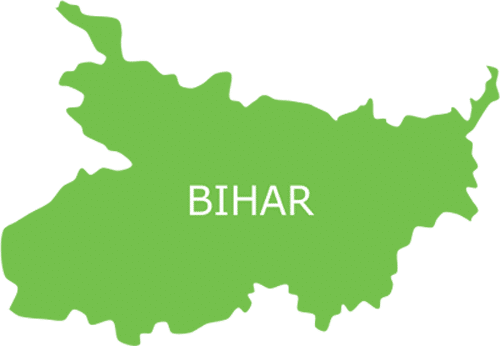Bihar is the third most populous state in India and has the fastest growing population compared to any other state in the country. Talking about the Human Development Index, the figures have been recorded the lowest among the major states for the last three decades. Major health and demographic indicators like poverty and illiteracy rate, infant and maternal mortality rate, male-female sex ratio are worse than any other state. One of the worst affected is the district of Madhepura, which has a population density higher than the state average. The district has poor healthcare facilities, forcing most of the inhabitants to be dependent on quacks.
Smile Foundation’s baseline survey revealed that 95% of people in the ten identified villages of Madhepura belonged to SC/OBC community, of which 92% were living below the poverty line. Major issues of concern were sanitation, inadequate health services, irregular ANM visits, and unawareness of MCH components like ANC/PNC, institutional delivery and immunisation.

Smile Foundation partnered with Siemens Limited to initiate Sanjeevan Smile on Wheels project in Madhepura. Launched on March 16, 2012, the project covered ten villages in two blocks – Madhepura and Ghalirdh, with a population of 82,500. Salient features of the project included providing accessible and quality medical facilities and promoting a health-seeking behaviour.
Feudal, caste and patriarchal oppression had lead to a low status of women in these villages. Mostly engaged in household work, the women hardly have any say in the family’s economic, social and decision-making. Thus Smile’s project gives special attention to the women folk in these villages. To bring a change in the parochial outlook towards women by enlightening the rural population, health awareness drives and community meetings are conducted periodically. The turnout of women in such activities has improved many folds since the project’s initial days.
Smile’s project has been appreciated by the local authorities and community members of these villages. Nearby village panchayats have also shown their interest to be a part of the Smile on Wheels project.
To uplift the status of women in the village community, special programmes for educating them on health issues are conducted.
Antenatal and postnatal services provided to pregnant women in order to ensure the safety of both mother and child. This is made possible through tie-ups with officials working for government-run faculties like ASHA, ANMs and Anganwadis.
Special health camps by panel of specialised doctors are regularly conducted in order reach out to a larger section of the rural population.
With an aim to encourage people to adopt healthy lifestyles, several health awareness and sanitation drives are also conducted.
Health camps in schools are also conducted to sensitise the students about basic hygiene habits like washing hands and regular bathing.
An innovative concept, the ‘healthy child’ competition has been introduced to promote a health-seeking behaviour among the young generation of the community.


IN 2014 , A TOTAL OF 12,000 PEOPLE BENEFITED FROM THE INITIATIVE

4500 STUDENTS RECEIVED BENEFIT FROM SCHOOLHEALTH PROGRAMS

OVER100 ICE ACTIVITIES WERE CONDUCTED LAST YEAR, BENEFITING MORE THAN 6500 PEOPLE

IN THE FIRST MONTH OF THE COMMENCEMENT OF THE STATIC CLINIC PROGRAM A TOTAL265 PEOPLE BENEFITED OF WHICH 57% BENEFICIARIESWERE WOMAN